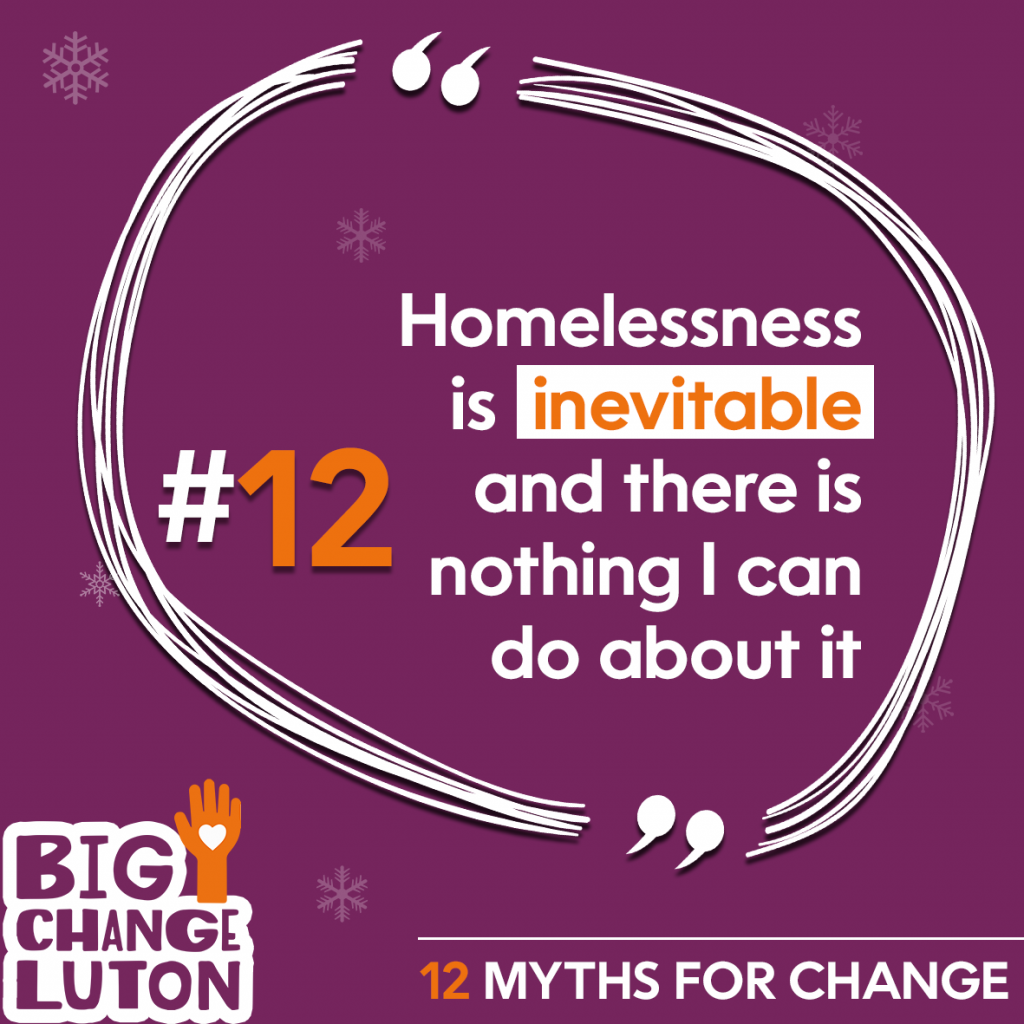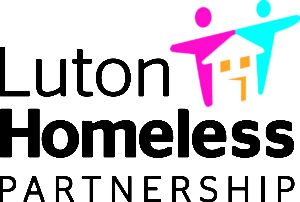
12 MYTHS FOR CHANGE
The Luton Homeless Partnership is challenging some of the myths around homelessness this winter. By challenging perceptions, we aim to raise awareness of the realities of being homeless and how we can work together to help those in need.
You can help people who are homeless by donating to the Big Change Luton initiative today!
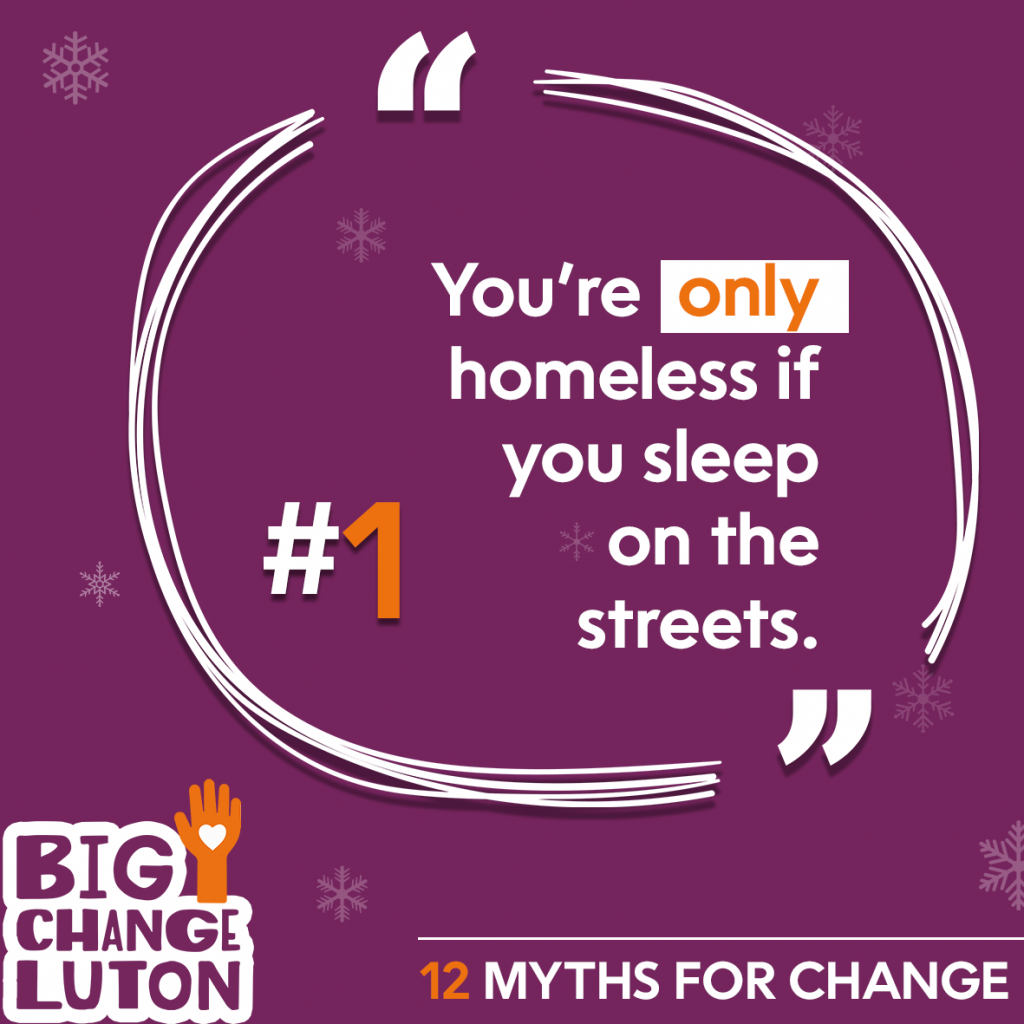
When most of us think of homelessness we imagine a person in a sleeping bag, bedded down on the streets. But homelessness is far broader than this, and includes people sleeping on friend’s sofas or floors, staying in hostels or B&Bs, and in buildings not fit for habitation.
1 in every 66 Lutonians are homeless - but only 1 in 20,000 Lutonians are street homeless.
People experiencing homelessness are often put in dangerous situations due to their homelessness, not because they are dangerous people. This is especially true for people who are street homeless, many of whom have mental health issues, which is often misinterpreted as them being dangerous people.
If you see someone who looks like they may be homeless, or in trouble, ask them if they’re OK if you feel comfortable doing that. Make eye contact, sit at their level, and listen. Sometimes sleeping rough can be lonely and frightening.
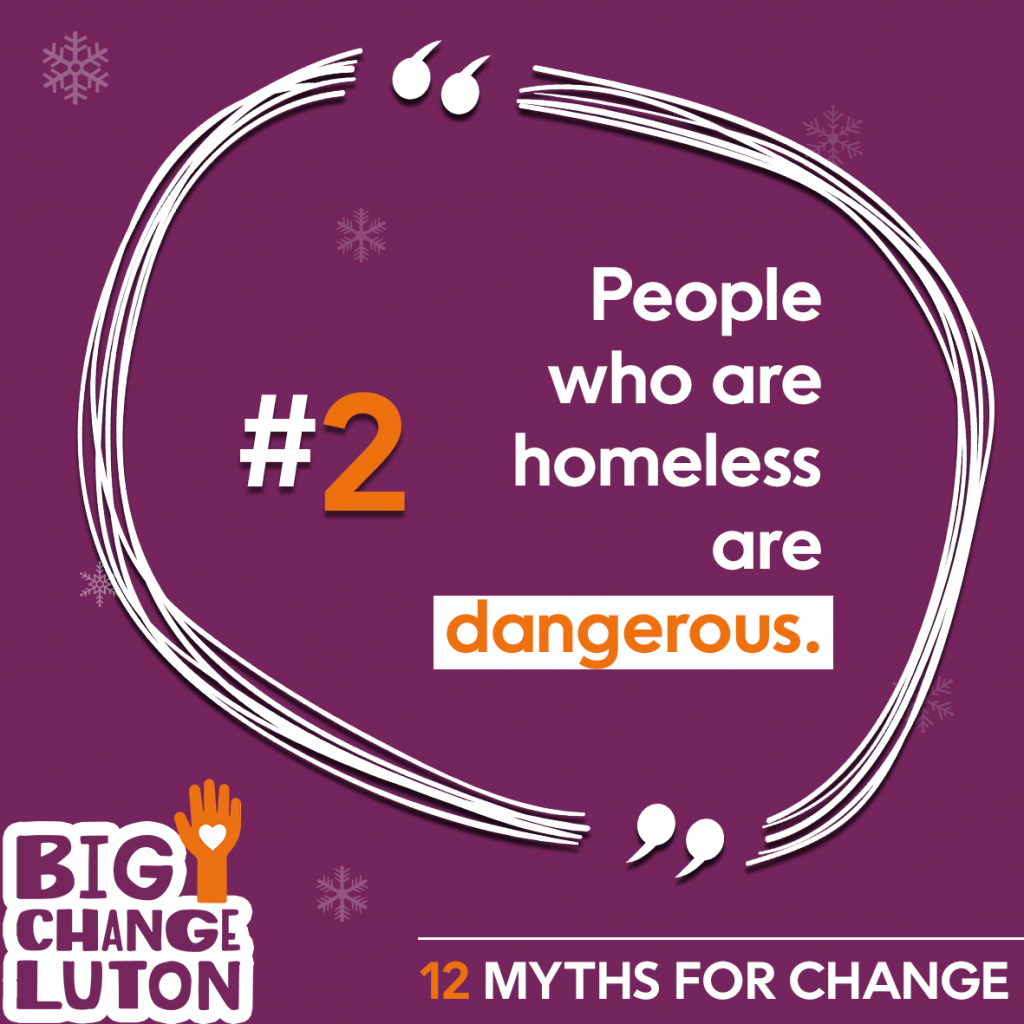
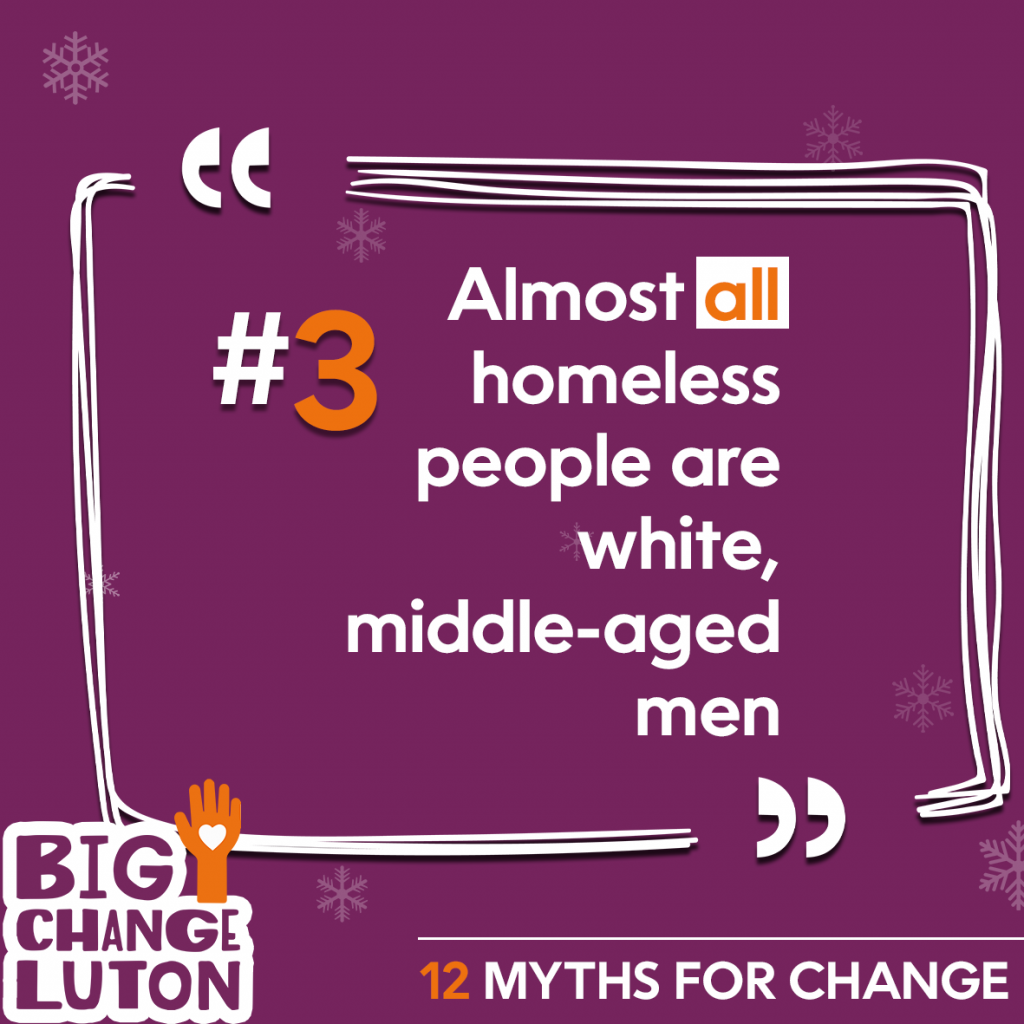
Females are 20% more likely than men to live in temporary accommodation, the root cause being the gender pay gap. Females are far more likely to become street homeless because of domestic abuse, and once on the streets, often face the choice of being abused by everybody on the streets or staying with an abusive partner for protection.
There are many obstacles that some who are homeless face which inhibit their ability to find sufficient work - for example a lack of clean clothes or transportation, no permanent address, learning disabilities, or minimal education.
However, the National Coalition for the Homeless estimates that 40%-60% of people experiencing homelessness are employed, sometimes working two or three jobs, and still not being able to afford housing.
Big Change Luton uses your donations to help people build the foundations to get into work, such as gaining proof of right to work in the UK, or purchasing work equipment such as steel-toe-cap boots.
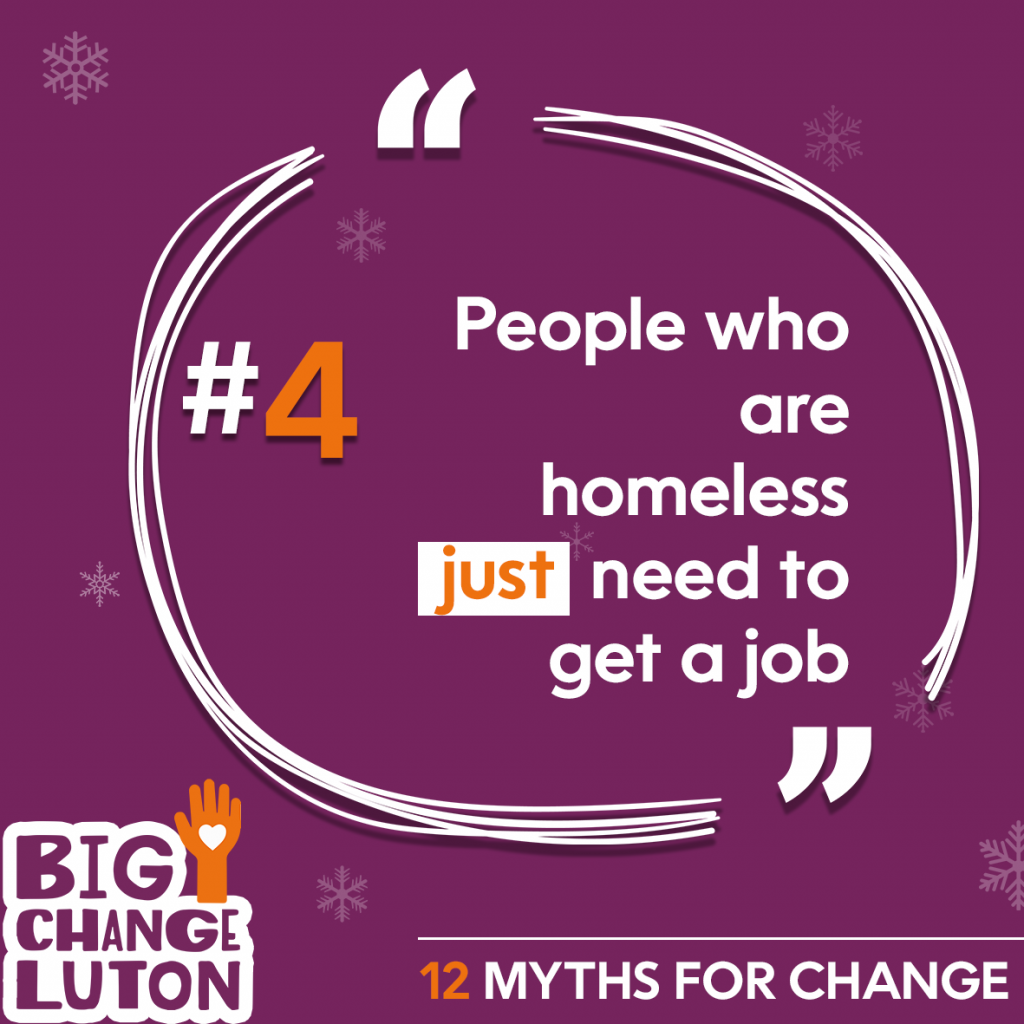
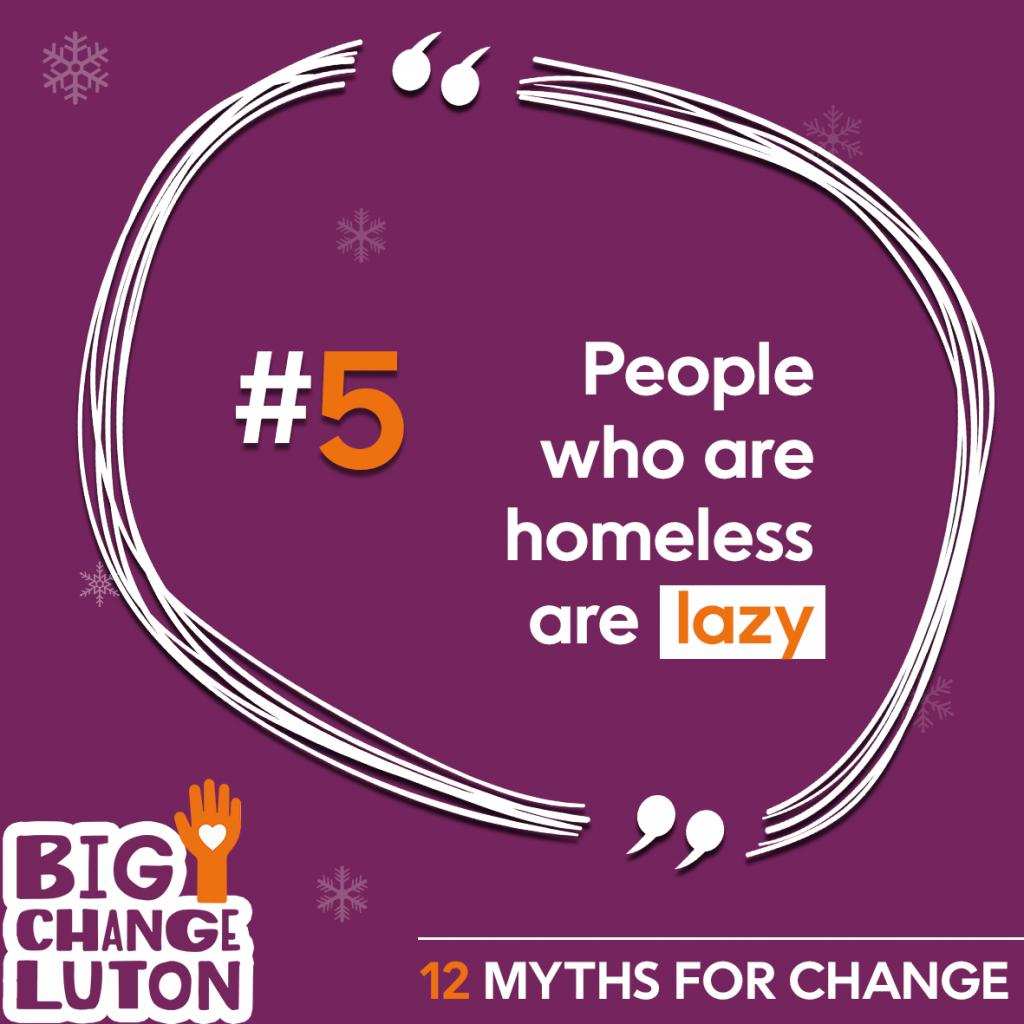
Being homeless can be exhausting. People who are homeless are often sleep-deprived, cold, wet, and in poor physical health. Constantly struggling to find a place to stay, in addition to holding down a job, seeking employment, or resolving other issues, can be very time consuming and draining.
It’s also important to recognise that homelessness is almost always a transitional stage in a person’s life – not a lifelong label. Last year, the Luton Homeless Partnership supported more than 200 people into employment.
Immigration rules can result in a person being deported just because they were seen sleeping rough. Migrants classed as having ‘restricted eligibility for public funds’ cannot access state support such as free healthcare or benefits. This puts them in a very vulnerable position in comparison to UK nationals, even if they are in work.
The Luton Homeless partnership runs specialist projects to enable people to earn a living whilst their immigration status is resolved.
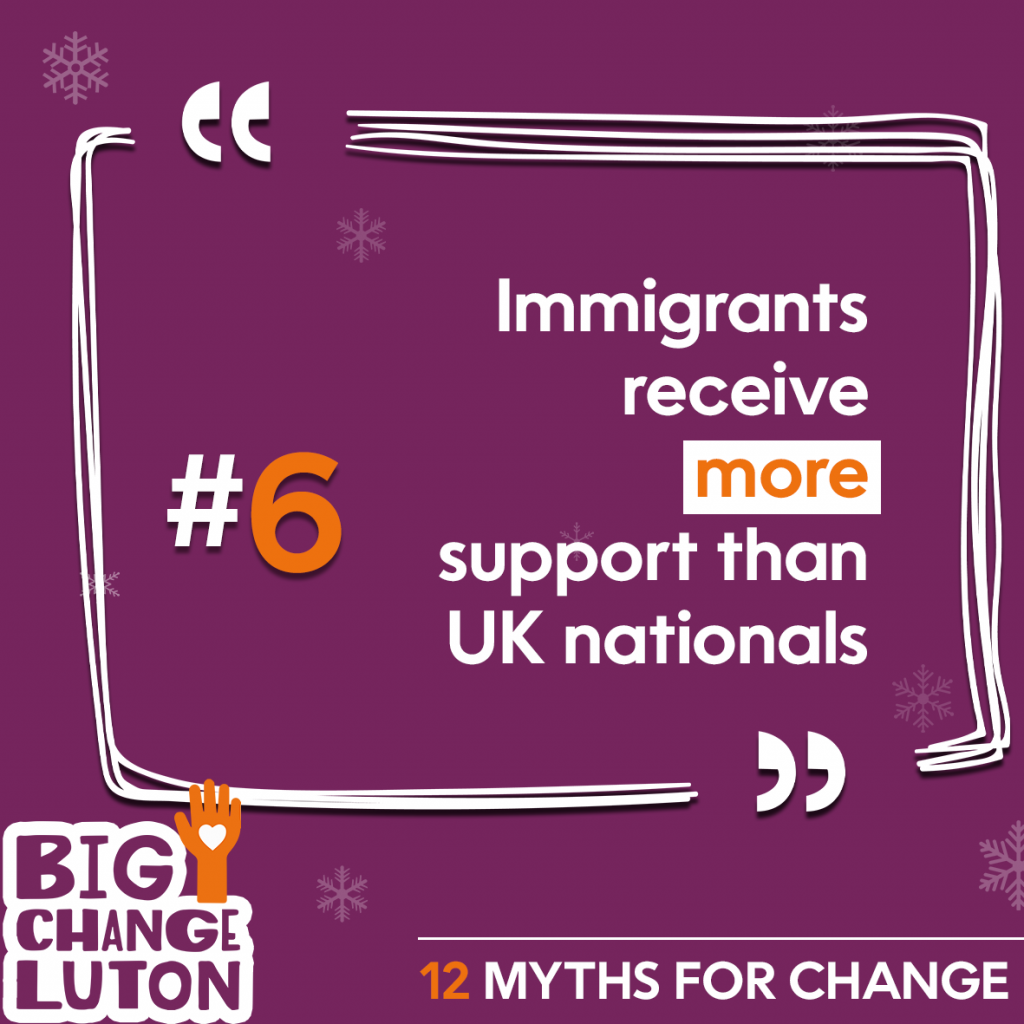
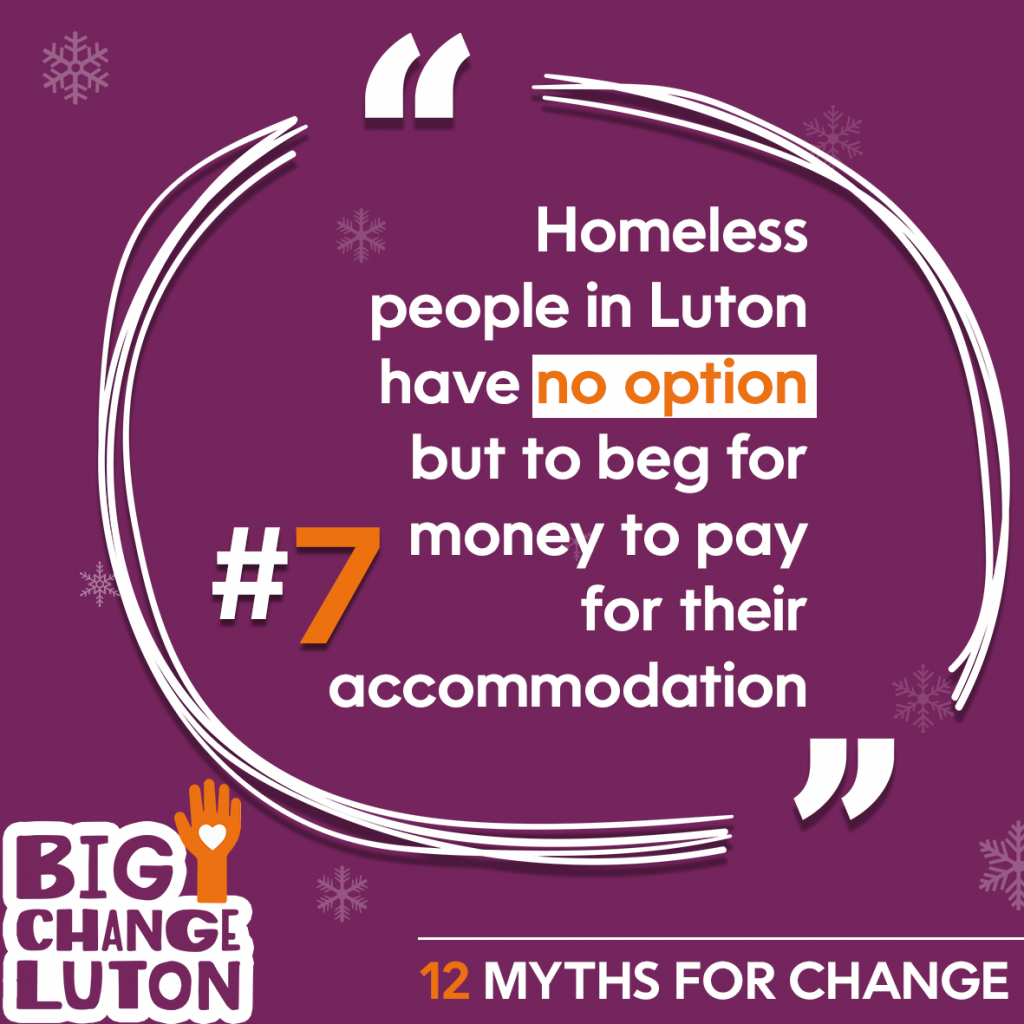
The Luton Homeless Partnership work very closely together to ensure that nobody needs to sleep on the streets. There is a lot of supported accommodation in Luton, and often, we can find a person threatened with homelessness accommodation for that same night.
In Luton, the evidence suggests that 95% of people begging are using the income to pay for life-controlling class A drug or alcohol addictions, and 5% are begging as an income stream because they housed but living in poverty.
People who are street homeless are under enormous mental and physical stress. On average, people who live on the streets long-term die 30 years younger than the average UK citizen.
That said, it is hard to understate the causal impact of drugs and alcohol in terms of street homelessness, with more than half stating that they have an addiction. In Luton, there are huge levels of debt and violent bullying attached to Class A drug addictions. Some people are manipulated and controlled by abusive individuals who will manage the begging spots, threaten them to give up their takings, intimidate them and threaten them with violence.
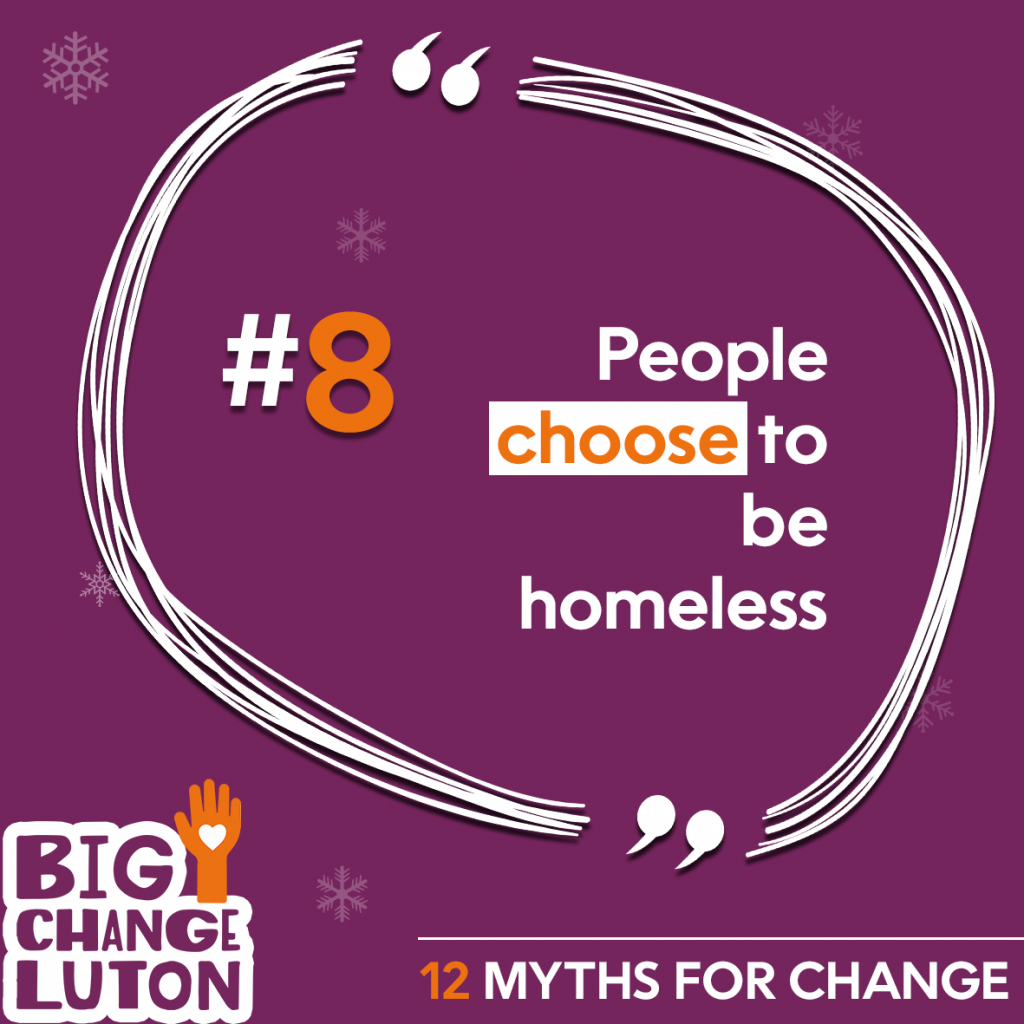
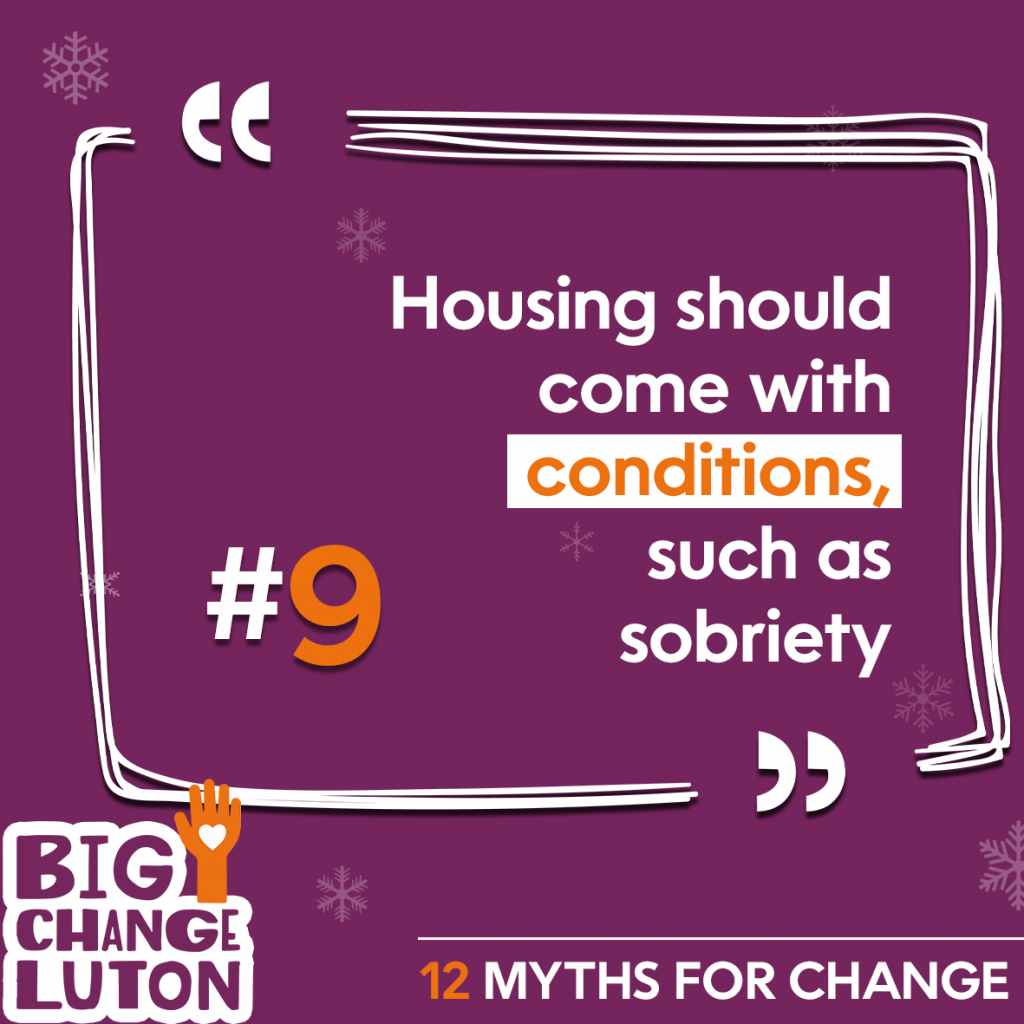
Many people who have been on the streets for years can thrive when provided with high-intensity support and their own accommodation. This concept is known as Housing First, and the Luton Homeless Partnership supports 18 people in this way. This approach acknowledges the complexities of addiction, mental health, and trauma, and that it is very difficult to address these challenges whilst living on the streets.
As children, many homeless people experienced trauma, neglect, poverty, family breakdown and disrupted education. This often leads to class A drug addiction, and their early trauma and damaged development frequently compounds when it evolves into a chaotic lifestyle. As adults, many suffer alarming levels of loneliness, isolation, unemployment, poverty and mental ill-health. This means that positive change can be a long journey, and we must be realistic about the pace at which people can move forward with their lives.
Imagine a mixed ethnicity female, who experienced poverty as a child, was brought up by a lone parent, left school or college at 16, had spells of unemployment, and was living as a renter with no partner but with her own children at age 26. Her probability of homelessness by age 30 is 71%. (Source: NPC)
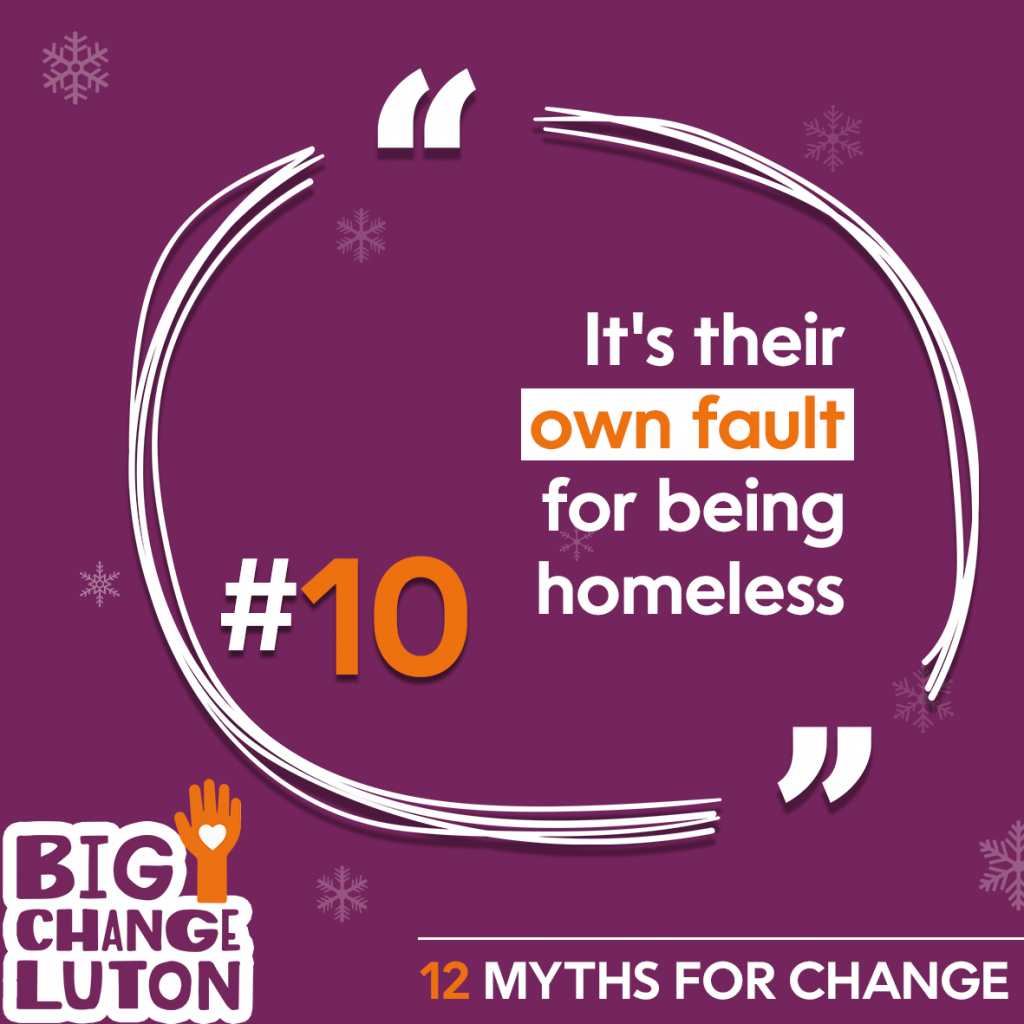
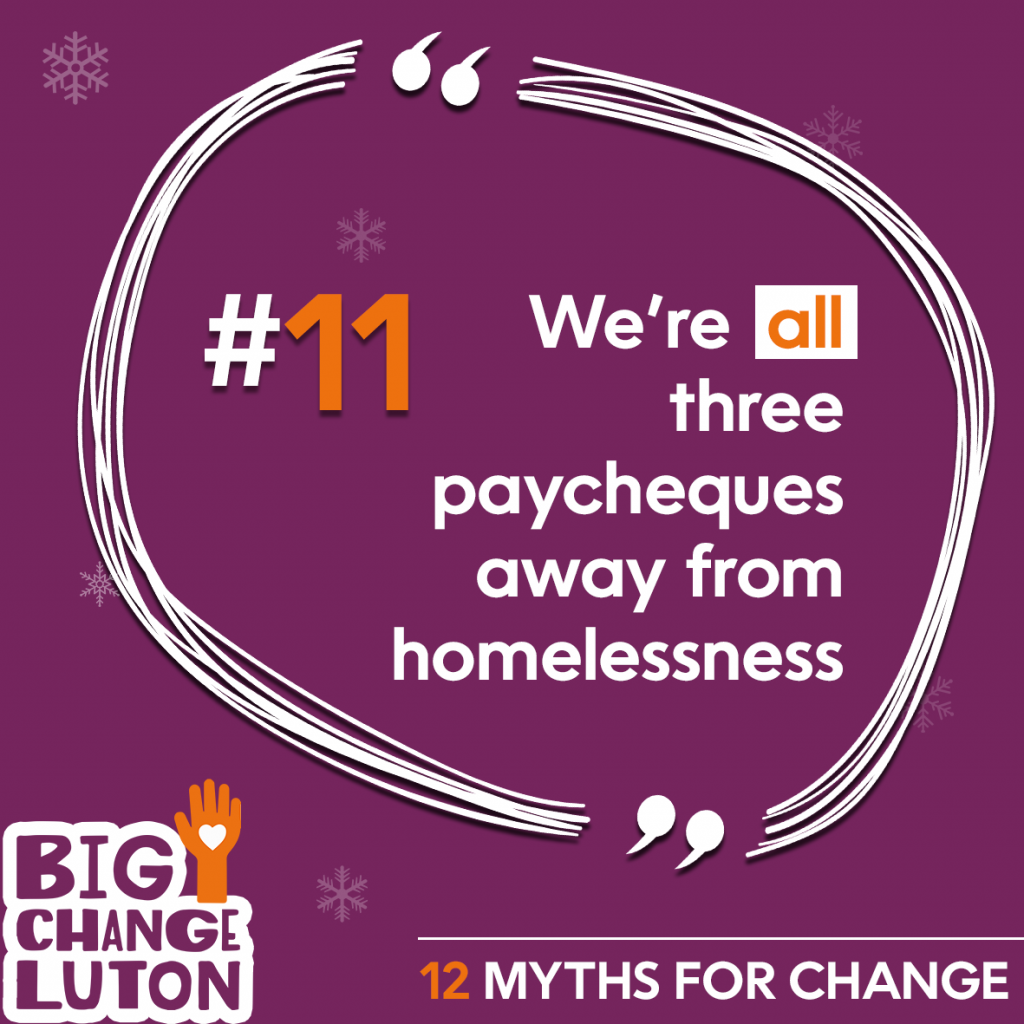
Many people who are homeless have little or no support network around them. That’s because over half experienced traumatic childhoods and therefore often become estranged from family members. People with strong support networks are far more insulated from the threat of homelessness. Conversely, in 2021 31% of single homeless people became homeless due to being asked to leave a family home or friend’s sofa. (Source: DHLUC)
Imagine a white male who had a relatively affluent childhood in the rural south of England, an unproblematic school career, went to university and graduated at 21, who was living with his parents at age 26, with no partner and no children. His predicted probability of homelessness by age 30 is 0.6%. (Source: NPC)
Rough sleeping in Luton has decreased by almost 90% since 2018. Together, there is lots that our community do to help end homelessness:
• Education: learn about what homelessness is, why people find themselves homeless, and what it is like to try to work your way out of it. Crisis have great resources.
•Give: be as generous as you can with your time, or donations. Support organisations which help people in poverty, such as local places of worship, or local causes such as Big Change Luton.
•Ask questions: if you see someone who you think might be homeless, ask if they’re OK. And question assumptions and stereotypes about homelessness.
